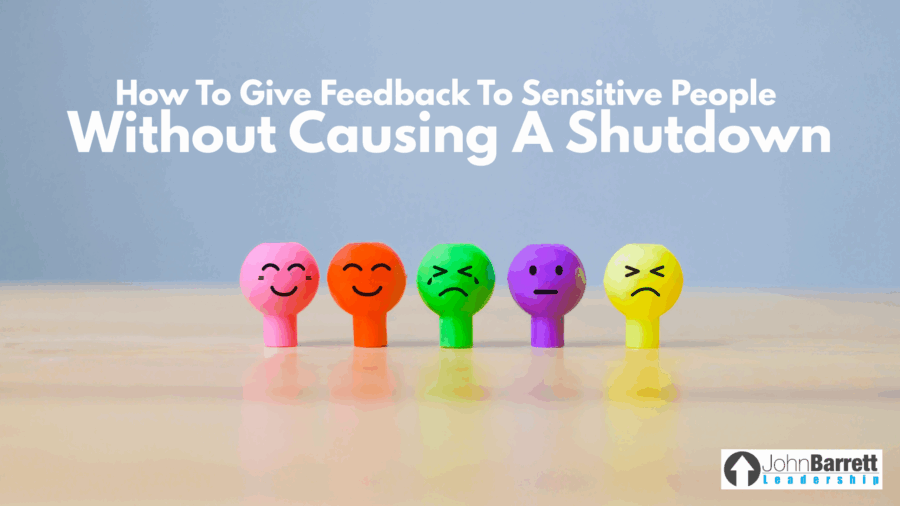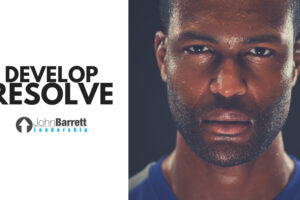How To Give Feedback To Sensitive People Without Causing a Shutdown
Let’s be honest—giving feedback can feel like walking a tightrope, especially when you’re dealing with someone who’s emotionally sensitive. Maybe they shut down. Maybe they get defensive. Maybe they start unraveling before you even finish your sentence. And let’s face it—because of that, many leaders avoid these conversations altogether. But if you want to be a wildly respected and effective leader, you can’t afford to sidestep these moments. You’ve got to learn to navigate them with confidence, compassion, and clarity.
Here are five power-packed strategies to help you deliver correctional feedback with care and confidence:
1. Balance Correction With Encouragement
Sometimes what looks like defensiveness is actually a deep need for encouragement. Many people who don’t respond well to hard feedback have lived in environments where affirmation was rare and criticism was constant. That means their sensitivity may be less about the feedback itself and more about the void they’ve experienced. We need to be mindful of the real story behind someone’s sensitivity to hard feedback.
Don’t skip the correction sandwich (Encouragement…Correction…Encouragement)—but make it authentic. Recognize what they do well and show them you see their efforts. Speak life before you speak lessons. If you want to lead people higher, start by lifting them up.
2. Begin With the Why
Before you give tough feedback, start the conversation with this truth: “I’m for you, not against you.” Make it unmistakably clear that this feedback is about their growth, not your grievance. Reassure them that your intention is to help them become the best version of themselves.
Say something like, “I want to have this conversation because I believe in your potential and care about your success.” If you frame the discussion with that heart, it opens the door for trust and transparency. What comes from the heart goes to the heart.
3. Be a Broken Record of Positivity
When someone reacts emotionally—by making excuses, getting defensive, or going silent—don’t be pulled into rehashing the past. Be a broken record of hope. Keep steering the conversation back to the future.
Say, “Let’s talk about how we can move forward…,” or, “I believe this is a turning point, not a dead end.” When others want to dwell on what went wrong and rehash it, leaders point the way to what’s next. Stay grounded in the goal: growth and improvement, not explanations and excuses.
4. Ask, Don’t Just Tell
Feedback should be a dialogue, not a monologue. Ask questions that open their perspective:
- “What do you think could have gone better?”
- “What’s one thing you’d like to do differently next time?”
- “What support do you need from me to improve?”
This shifts the focus from blame to ownership. When people feel heard, they’re more likely to hear you too. Lead with questions and be collaborative.
5. Set Guardrails of Accountability
Feedback without follow-through is just noise. Make expectations clear, and create a path for progress. Let them know, “I’ll circle back on this next week,” or “Let’s set a short-term goal together.” Give them the clarity, structure, and hope they need to move forward confidently.
Remember: accountability isn’t punishment—it’s partnership.
Bonus Tip: Celebrate Progress, Not Perfection
Sensitive people often carry a fear of failure. So when you see even a small step in the right direction, celebrate it! That encouragement fuels momentum. It says, “You’re getting there,” instead of, “You’re still not enough.” Do not, and I repeat DO NOT, withhold encouragement to others. Great leaders are incredibly generous with their encouragement.
Leaders, don’t shy away from the hard conversations. Because feedback isn’t just about performance—it’s about potential. And when you deliver it with candor and care, you won’t just correct behavior—you’ll unlock greatness.









